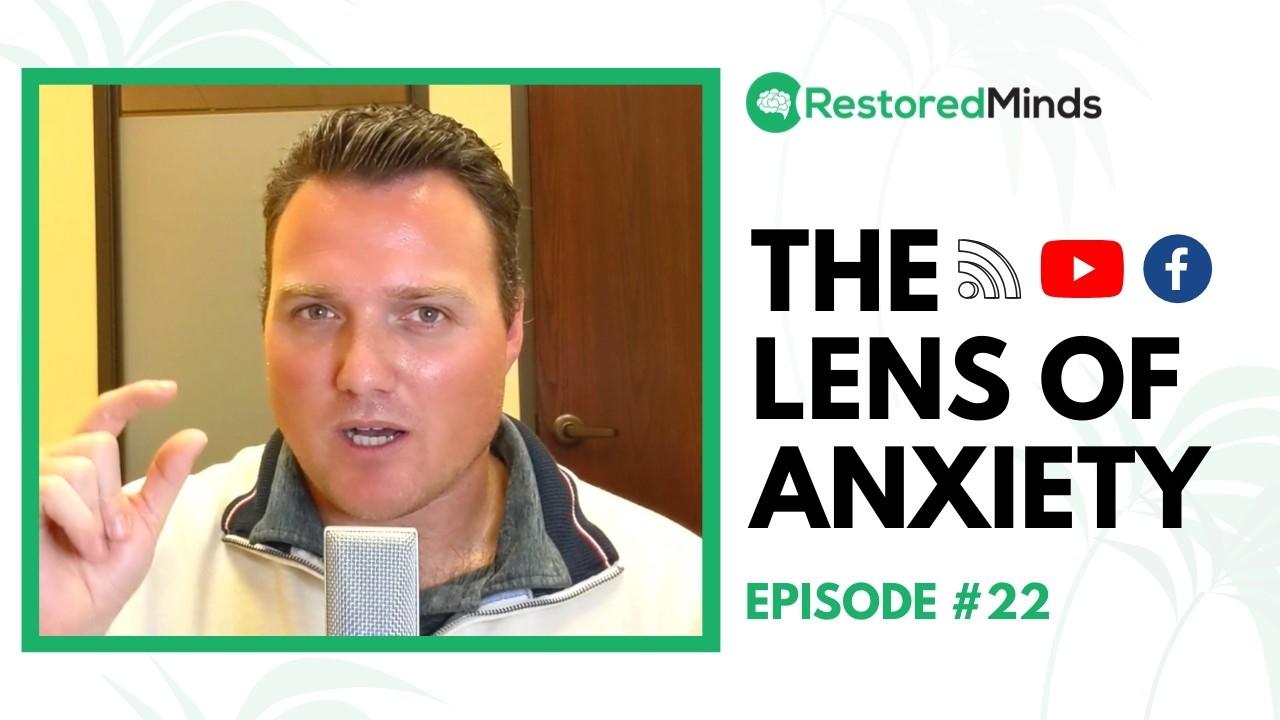OCD & Anxiety Treatment: The Lens of Anxiety
Mar 04, 2020
What is the Lens of Anxiety?
The lens of anxiety is a powerful metaphor to help explain how anxiety and OCD distort your perception of reality. Imagine wearing tinted goggles that skew your vision—this is precisely how anxiety works. Whatever the object of your fear—whether contamination, social settings, flying, or anything else—it appears incredibly real and threatening through these goggles.
For instance, if you have contamination OCD, the fear of germs and diseases feels as tangible and immediate as a real-world danger, despite its low probability. This distorted perception leads to behaviors like excessive cleaning or avoiding social situations, which, over time, reduce the quality of your life.
The Real Problem of Anxiety
An essential component to understanding anxiety treatment is recognizing that the core issue isn't what your mind tells you it is. It isn't the fear of flying or contamination; it's the misperception of these as threats. This misperception leads to a chain reaction of limitations and restrictions in your daily life, creating a ripple effect of fears and actions that make your world smaller and narrower.
Example: The Ripple Effect
-
Fear of Flying
: This is not about the planes themselves but the incorrect perception that they are inherently dangerous. Because of this, you might avoid vacations or familial events involving air travel.
-
Contamination OCD
: It’s not about the presence of germs but the perception that these germs pose a constant threat. Consequently, you might spend hours cleaning or avoid public spaces, robbing you of meaningful experiences.
Breaking Free from the Lens of Anxiety
So how do we break free from the lens of anxiety? The aim is not to ensure absolute certainty about our fears but to learn how to perceive them accurately. This shift involves using specialized tools and strategies, particularly Exposure and Response Prevention (ERP).
What is ERP?
ERP is the gold standard in treating OCD and anxiety. This method involves:
-
Exposure
: Facing the fear-inducing stimulus gradually.
-
Response Prevention
: Avoiding the safety behaviors you usually engage in to mitigate anxiety.
Over time, ERP helps your brain categorize perceived threats accurately, reducing the irrational fear that fuels your anxiety.
Recognizing When You’re in the Lens
One of the critical steps in managing anxiety is developing the awareness to realize when you’re viewing the world through this distorted lens. This self-awareness can be challenging but identifying cues can be your guide.
Personal Cues
For example, you might notice that activities you usually enjoy don’t bring the same pleasure when you’re in the lens. Music is a personal indicator for many; if your favorite songs don’t lift your mood as they usually do, it might be a sign you're trapped in an anxious state.
Final Thoughts
Understanding and acknowledging the lens of anxiety is the first step towards reclaiming control of your life from OCD and anxiety. By utilizing tools like ERP and practicing self-awareness, you can start to see the world more accurately, reducing the distortions that feed your fears.


